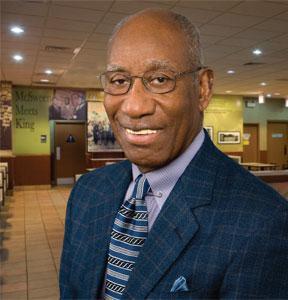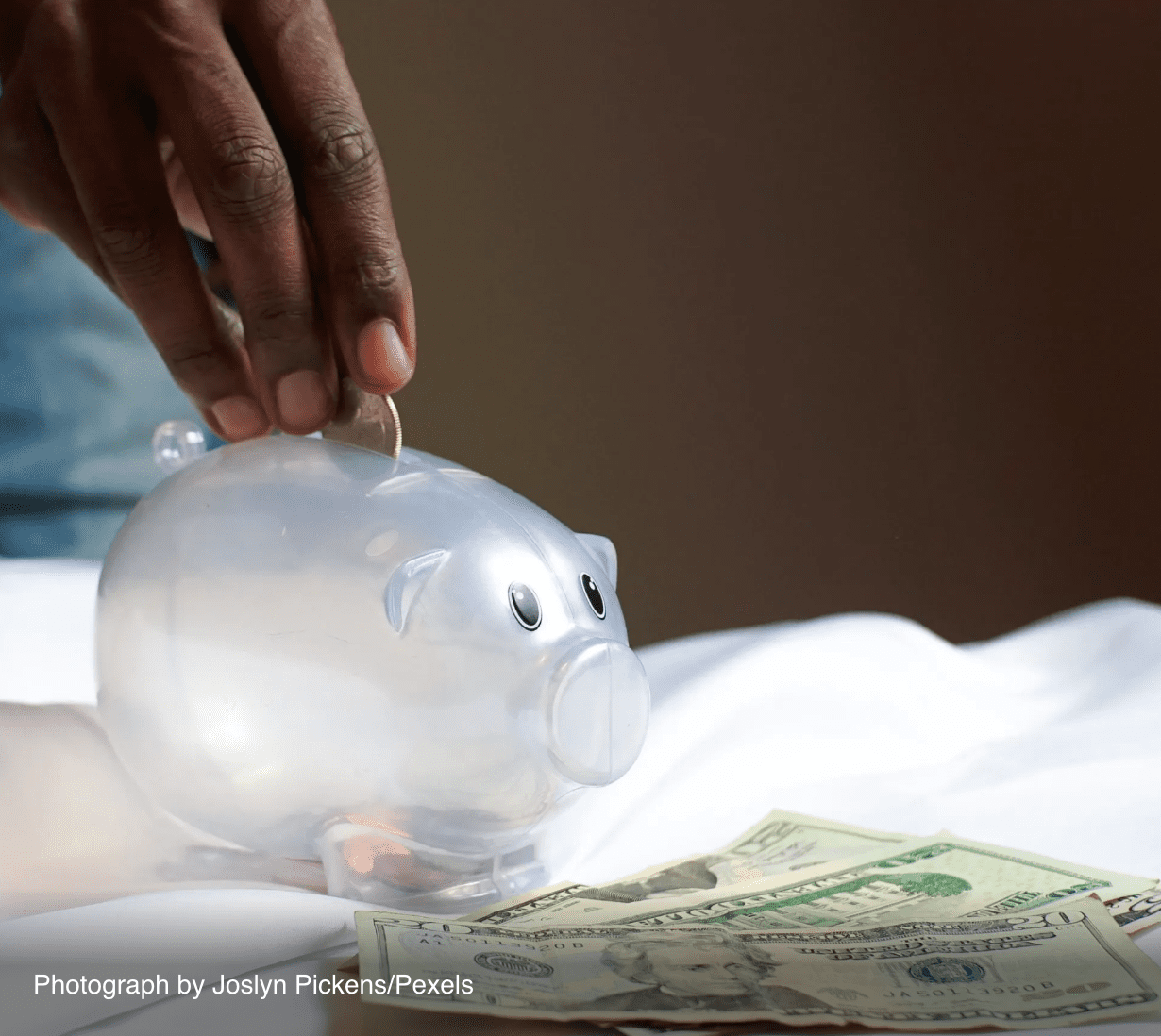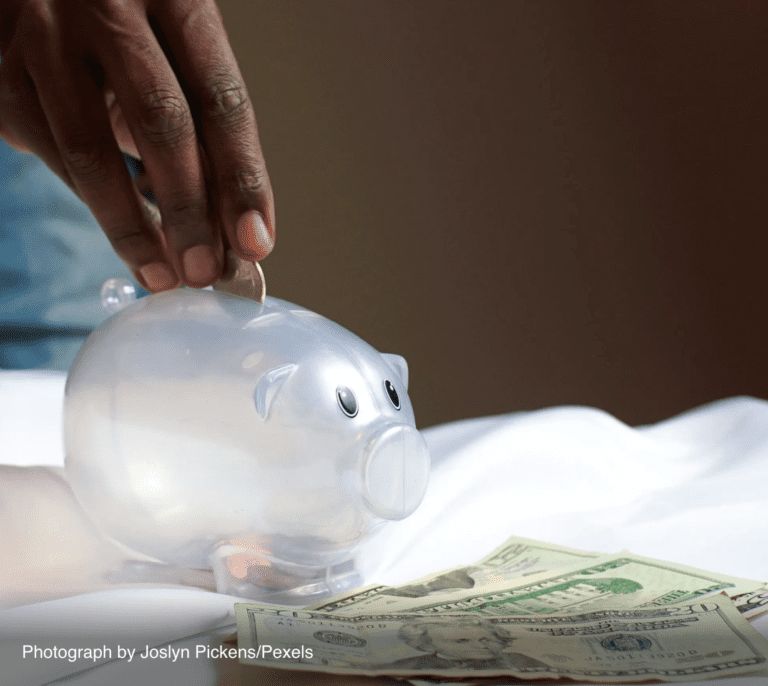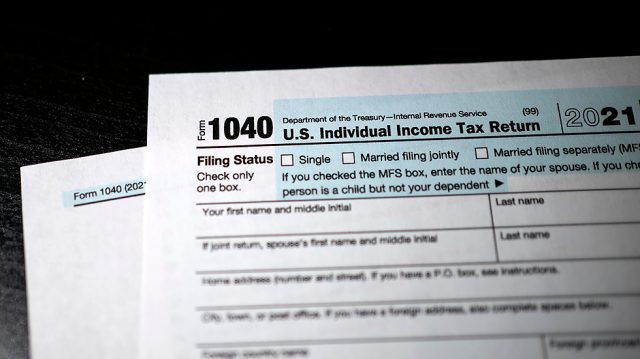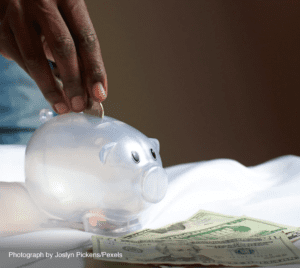Meet Ketanji Brown Jackson, President Biden’s expected nominee for the Supreme Court.
USA TODAY
Story Highlights
Jackson poised to become first Black woman on Supreme CourtHer maxims: Hard work, finding mentors, big breaks, tough skin against slightsUnusual legal career path included public defender work, cases involving accused terrorists
Ketanji Brown Jackson, the first Black woman nominated for a seat on the Supreme Court, knows what it’s like to have her qualifications questioned.
She has an answer.
“I cannot recall a single time in my childhood in which I cared about the slights and misperceptions and underestimations that came my way,” Jackson said while accepting a Black Law Students Association award in 2020. “What I do remember is often thinking, ‘Hmm; well, I’ll show them.’”
After a lifetime of preparation in an at times untraditional career path, the brightest spotlight yet – a Senate Judiciary Committee confirmation hearing for a spot on the nation’s highest court– will test her answers anew starting on Monday.
The process involves “a lot of stress,” Jackson said during a 2019 panel discussion sponsored by the Historical Society of the District of Columbia. She spoke from past experience then about what would become the first of her two previous confirmation hearings for federal judgeships.
“You go before the Senate Judiciary Committee, the lights are as bright as they are in here in terms of the cameras and attention,” Jackson said during the panel discussion. “And you try not to make a fool of yourself in front of the senators.”
Notable opinions: Jackson’s trial court opinions have cut both ways
Public defender: Supreme Court nominee faces criticism over Gitmo clients
In preparation for next week’s hearings, USA TODAY reporters watched more than 14 hours of Jackson’s videotaped speeches and events, including that panel discussion. The review also included reading more than 2,000 pages of Jackson’s writings, talks and presentations, as well as her answers during the earlier confirmation hearings.
What emerged is an in-her-own-words review of Jackson’s meteoric rise from a high school debater – who even then knew she wanted to be a judge – to Harvard University degrees recipient, federal public defender, private lawyer, federal sentencing commission appointee and, finally, federal judge.
President Joe Biden selected Judge Ketanji Brown Jackson to replace retiring Justice Stephen Breyer on the Supreme Court. (Photo: Drew Angerer/Getty Images)
Along the way, Jackson, 51, often has shared her story and encouraged others to follow her path.
On the road for speeches
She ramped up her travel in recent years as she landed on shortlists for a federal appeals court and the Supreme Court, a review of federal financial disclosure reports paired with her speaking records shows.
While on the road,Jackson had speaking or other roles at 45 events from 2015 through 2020, the review found. Much of that travel involved her role as a member of Harvard’s Board of Overseers, a panel of university alumni that advises the university’s leadership on priorities and strategic initiatives.
The records show she reported one gift from the trips, $3,000 for delivering a lecture at the University of Georgia. However, she received reimbursements for travel, hotels and meals for that trip and other speaking engagements.
Jackson had frequent interactions with law students. She judged moot court competitions at William and Mary Law School, Yale Law School, the University of Pennsylvania Law School and Columbia Law School during the six years, the records show.
By comparison, records for the last high court nominee, Associate Justice Amy Coney Barrett, showed she appeared at more than 100 events between 2010 and 2020, though much of that period was before the COVID-19 pandemic limited travel. She also visited 18 cities from 2018 to 2020 – the year she became a Supreme Court justice – and spoke at private legal luncheons, as well as at debates and panels of the Federalist Society, a group of conservatives and libertarians dedicated to changing the legal system in ways aligned with their ideology.
During her many speeches and other public appearances, Jackson said she did not have a specific judicial philosophy.
Judge Ketanji Brown Jackson, of the U.S. Court of Appeals for the District of Columbia Circuit, poses for a portrait, Friday, Feb., 18, 2022, in her office at the court in Washington. (Photo: Jacquelyn Martin, AP)
Originalism or a living document?
Retiring Associate Justice Stephen Breyer – the judge and mentor Jackson once served as a Supreme Court law clerk – is a leading proponent of the view thatthe Constitution is a living document. In his view, that means cases should be decided by looking at the value and purpose underlying particular phrases and the consequences of opting one way or the other, through the lens of those values and purposes.
Others, including Barrett, are originalists, who think cases should be decided based on the meaning of the words and phrases as they would have been understood at the time the Constitution was written and ratified.
Jackson has declared that she belongs to neither of those legal camps.
“I do not have a judicial philosophy per se, other than to apply the same method of thorough analysis to every case, regardless of the parties,” she said in response to a question from Sen. Ted Cruz, R-Texas, a Harvard Law School classmate, during the 2021 confirmation hearing for her current job as a judge on the U.S. Court of Appeals for the District of Columbia Circuit.
“Specifically, in every case that I have handled as a district judge, I have considered only the parties’ arguments, the relevant facts, and the law as I understand it, including the text of any applicable statutes and the binding precedents of the Supreme Court and the D.C. Circuit,” Jackson said. “And I have consistently applied the same level of analytical rigor to my evaluation of the parties’ arguments, no matter who or what is involved in the legal action.”
Her assertion, and relative lack of experience with constitutional decisions in most of her previous court decisions, is common for judges at the federal trial court level. But it may make it difficult for opponents of Jackson’s Supreme Court nomination to pin down what she would do if confirmed.
However, she provided some insight into her legal decision-making when she wrote a critique that questioned the likelihood and causes of judicial bias. To bolster her view, Jackson cited an 1881 clash in which a Rosebud Sioux Native American tribal member shot and killed the tribe’s leader.
After weighing the killing, a tribal council ordered the shooter to pay $600, eight horses and a blanket to the slain chief’s family, who accepted the decision. Why? Because the tribe was most concerned with survival, and sought a united front of its members.
Federal authorities, after learning about the decision, arrested the shooter, prosecuted him in court, and won a guilty verdict, followed by a death sentence by hanging. Why? To underline the authority of federal law, even though the tribe had sovereignty on its land. The sentence was later overturned by the Supreme Court.
Unique background: Judge Jackson could have ‘profound’ impact on sentencing
“What I hope you take away from this story is an understanding that, at bottom, the decision about what the appropriate sentence is in any given case is a question of values, and as a result, it matters who is making the sentencing decision, and which purposes of sentencing he or she sets out to achieve,” Jackson wrote.
“If we are going to have a system in which cases are to be decided by different judges, then it is unlikely that we will ever achieve consistency with respect to case outcomes,” she added, “and I believe that the observed inconsistencies are largely attributable to factors other than group-based bias by judicial decisionmakers.”
Supreme Court nominee Judge Ketanji Brown Jackson, left, rides the Senate subway with former Alabama Sen. Doug Jones on Capitol Hill, Wednesday, March 16, 2022. (Photo: Alex Brandon, AP)
Legal roles in terrorism cases
During previous nomination hearings, Jackson has been clear, and unapologetic, about her role in cases that involved alleged terrorists who were classified as enemy combatants after the 9/11 terror attacks. She represented one of them as a federal public defender. In the case of another, that she worked on while in private practice, she wrote friend of the court briefs that raised constitutional arguments about his detention.
“Under the ethics rules that apply to lawyers, an attorney has a duty to represent her clients zealously, which includes refraining from contradicting her client’s legal arguments and/or undermining her client’s interests by publicly declaring the lawyer’s own personal disagreement with the legal position or alleged behavior of her client,” Jackson said during her 2021 confirmation hearing for the D.C. Circuit.
Appeals: Biden nominee poised for confirmation – and maybe the Supreme Court
History: Meet the Black women judges who came before Jackson
One of the friend of the court briefs, whichshe wrote when representing 20 former federal judges, argued that the legal process used for the accused terrorists was not designed to assess the reliability of the government’s evidence – or determine whether that evidence may have been extracted through torture.
The process doesn’t enable “searching factual inquiry by a neutral factfinder when assessing whether or not the person’s detention was legal,” she said during a 2007 panel discussion held by the American Constitution Society, a progressive legal organization. “There was no real way to challenge the statements that had been made.”
Jackson also preaches what she practiced in taking on the terrorism cases.
As a 2021 commencement speaker for the University of Pennsylvania’s Carey Law School, she told the graduates they might one day be asked to represent unpopular clients, including someone accused of a serious crime.
“When that opportunity arises, please take it,” Jackson said. “The rule of law to which we are all committed cannot flourish unless the legal system is fair and open to all, and that means everyone is entitled to have effective representation.”
Supreme Court nominee Judge Ketanji Brown Jackson poses for photographs while visiting Sen. Deb Fischer, R-Neb., in her office in the Russell Senate Office Building on Capitol Hill on March 17, 2022 (Photo: Chip Somodevilla, Getty Images)
Ancestry, family life shape judge
At times, Jackson has pulled back the curtain on her family life.
Delivering the 35th Edith House Lecture at the University of Georgia in 2017, she told the audience that her parents, Johnny and Ellery Brown, chose their firstborn’s African name from a list sent by an aunt who at the time was serving with the Peace Corps in Africa.
Ketanji Onyika, the first and middle names she was known by in her youth, mean “lovely one,” Jackson said her parents were told.
“My parents boldly and proudly gave me an African name; they dressed me in a mini-dashiki; I was rocking Afro-puffs!” Jackson said during her presentation to the Black Law Students Association.
“And, most importantly, they set out to teach me that, unlike the many barriers that they had had to face, my path was clear, and that if I worked hard and believed in myself, I could do anything or be anything I wanted to be,” she said.
That turned out to be a lawyer and, eventually, a judge.
‘Stealthy’: Justice Breyer had a big impact on abortion. That legacy is now in jeopardy
At a virtual event featuring former Breyer law clerks in 2020, Jackson praised the retiring justice, one of her many mentors, for his dedication to equality and diversity. She noted she had not been his first Black female clerk.
“As a descendent of slaves, let me just say that (Breyer’s) thoughtfulness has made a world of difference. It’s opened doors of opportunities that my forbearers, including my grandparents, would not have even dared to dream up.”
From h.s. debate team to Harvard
She started the road toward fulfilling that dream while a nationally ranked orator on the speech and debate team of a high school in a largely Jewish community in South Miami, Florida.
Jackson’s team traveled to Harvard for several competitions. She loved everything about the school, except the cold Massachusetts winters, which she said were tough for a Miami woman.
Despite what she said was a high school guidance counselor’s recommendation of a more modest educational goal, she applied to Harvard, and was accepted.
Ketanji Brown Jackson attends a cocktail hour with overseers at Loeb House at Harvard University on Feb. 8, 2020. (Photo: Rose Lincoln, Harvard University)
Pursuing her goal, she focused her undergraduate thesis on plea bargains and “the coercion of criminal defendants.” Jackson concluded that the system in which prosecutors offer lesser sentences for guilty pleas that avoid the need for trials is “both coercive and unacceptable.” However, she wrote that plea bargains are so ingrained in the criminal justice system that it might be impossible to eliminate them.
In other Harvard classes, actor Matt Damon was one of her scene partners in a drama course. He wouldn’t remember her, she laughed.
However, Jackson established a lasting relationship during college.
She and her husband, Dr. Patrick Jackson, met as Harvard undergraduates. They married later, as she went to Harvard Law School and he went to Columbia University’s College of Physicians and Surgeons. Dr. Jackson is now a surgeon on staff at MedStar Georgetown University Hospital in Washington, D.C.
He’s a “quintessential Boston Brahmin” whose family lineage can be traced back to England before the Mayflower, Jackson said during her University of Georgia presentation. Her husband and his twin brother are sixth-generation Harvard graduates, she said.
“In contrast, I am only the second generation in my family to go to any college,” Jackson added.
Jackson and her husband have two daughters, Talia, a college student, and Leila, a high schooler. During Jackson’s 2017 University of Georgia appearance, she quipped that her daughters were in the “full throes of teenagerdom” during her time as a federal district court judge.
She also jokingly told the attendees about the change she undergoes each night when she leaves her day job.
“During the workday, I am a federal judge, which means people generally treat me with respect,” she said. But when she leaves the courthouse to go home, “in the course of that transition all of my wisdom and knowledge and authority evaporates. My daughters make it very clear that as far as they are concerned, I know nothing, I should not tell them anything, much less give them orders – that is if they talk to me at all.”
But her daughters have been paying attention. After Associate Justice Antonin Scalia died in 2016, Leila Jackson, then in middle school, wrote a letter asking President Barack Obama to consider her mother as Scalia’s successor.
“She’s determined, honest and never breaks a promise,” Leila wrote, “even if there were other things she’d rather do.”
Supreme Court nominee Judge Ketanji Brown Jackson arrives at the offices of Sen. Deb Fischer, R-Neb., before a meeting in the Russell Senate Office Building on Capitol Hill on March 17, 2022. (Photo: Chip Somodevilla, Getty Images)
Giving back to help others succeed
Having reached many of her goals, Jackson said she feels a duty to help others follow.
“In my faith tradition, it is said that to whom much is given, much is expected. I take that to mean that we who have benefitted have a responsibility to give back to our community in whatever way we can,” she said during the Black Law Students Association event.
Jackson identifies as a Christian and a Protestant, a source close to her told USA TODAY earlier this month under anonymity to discuss her personal background.
Religion: Judge Jackson would add another Protestant voice to Supreme Court
She recommended three maxims – hard work, big breaks and tough skin. For the first, Jackson recalled her high schoolspeech and debate team days.
“What that meant was that while other kids were hanging out late going to parties, I was either writing or rehearsing my speech, or sleeping ahead of a 5 a.m. Saturday morning tournament wake-up call,” she said. “And that kind of self discipline and sacrifice has carried through at every stage thereafter, which, if I’m being honest, has made me kind of boring, but has also allowed me to have opportunities that my grandparents could not have even dreamed about.”
Jackson also quoted part of a favorite poem, Henry Wadsworth Longfellow’s The Ladder of St. Augustine: “The heights by great men reached and kept, were not attained by sudden flight, but they, while their companions slept, were toiling upward in the night.”
Jackson, who sought out mentors at every stage of her life, advised the students to do the same.
“It is often the connections that you make with other people that lead to your being in the right place at the right time so that you can take advantage of new opportunities,” she said.
And she cited a Harvard classmate’s decision to hang a confederate flag outside his dorm room window as an experience with racism that taught her to toughen her skin. She and other members of the Black Students Association organized rallies, circulated petitions and planned protests.
“And, of course, while we were busy doing all of those very noble things, we were not in the library studying,” Jackson said. “I remember thinking how unfair it was to us that in addition to having to be victimized by the sentiments that that symbol expressed and by what we perceived to be the unacceptably lax response of the university, we were also missing classes.”
“That’s exactly what the student who had hung the flag really wanted: for us to be so distracted that we failed our classes and thereby reinforced the stereotype that we couldn’t cut it at a place like Harvard,” she added.
Jackson said her lesson was this: “You have to let go of the additional burden of having to internalize, signal and react every time you perceive that you’ve been slighted.”
She underlined the point by quoting lines from another favorite poem, Maya Angelou’s Still, I Rise: “You may write me down in history, with your bitter, twisted lies, you may trod me in the very dirt, but still, like dust, I’ll rise.”
Picking up the torch
Jackson says her life goals were inspired by successful women and men, including Constance Baker Motley, who was born 49 years to the date of Jackson’s birth. Motley, a civil rights icon, was the first Black woman to serve as a federal judge.
In 2021, Jackson was the award recipient during the sixth annual Empowering Women of Color Constance Baker Motley gala at Columbia University Law School.
“The lawyers of color in the generation prior galvanized a movement that would change their lives, and that of their decedents, forever, and they did so during a period of time in which they themselves did not have the many benefits that we now enjoy,” Jackson said during the gala.
“The mantle that Judge Motley and others took up in their time has been passed to us – as judges, and lawyers, and soon-to-be law graduates – we are now charged with the responsibility of making the most of our legal education and considerable good fortune, and of doing the work that is necessary to protect the rule of law and to promote equality and justice for all.”
On the lighter side
When not focused on court matters, Jackson isn’t all wonk and no play. She and other judges participated in a 2017 mock trial focused on whether the marriage of Olivia and Sebastian, characters in Shakespeare’s comedy Twelfth Night, should be annulled.
Jackson questioned the timing of a potential annulment. “I hear the tax benefits are going to be enormous for two wealthy people getting married in 2018,” she quipped.
She also showed an appreciation for political humor while part of a judicial panel that weighed mock legal arguments over the Greek myth in which an oracle of the god Apollo told Orestes he must murder his mother.
“The oracle clearly was the one with influence,” said Jackson. “The oracle had as many distinct adviser roles as Mick Mulvaney,” she added, referring to the Trump administration appointee who headed the Consumer Financial Protection Bureau while also serving as White House budget director.
During her earlier years as a federal public defender, Jackson was a devotee of reality TV competitions, including American Idol, said A.J. Kramer, who was her boss at the time.
“Ketanji would come in the next morning after every show – she’s quite a student of music, actually – and she would critique them to great lengths on their performance the night before,” Kramer said during Jackson’s 2013 swearing-in as a federal district court judge.
Jackson was even more engrossed with another reality show, Survivor, said Kramer. So much so, that he joked she appeared to have an as yet unfulfilled career goal.
“I’m sure right now she always wanted to be on Survivor,” he said.
Contributing: John Fritze


